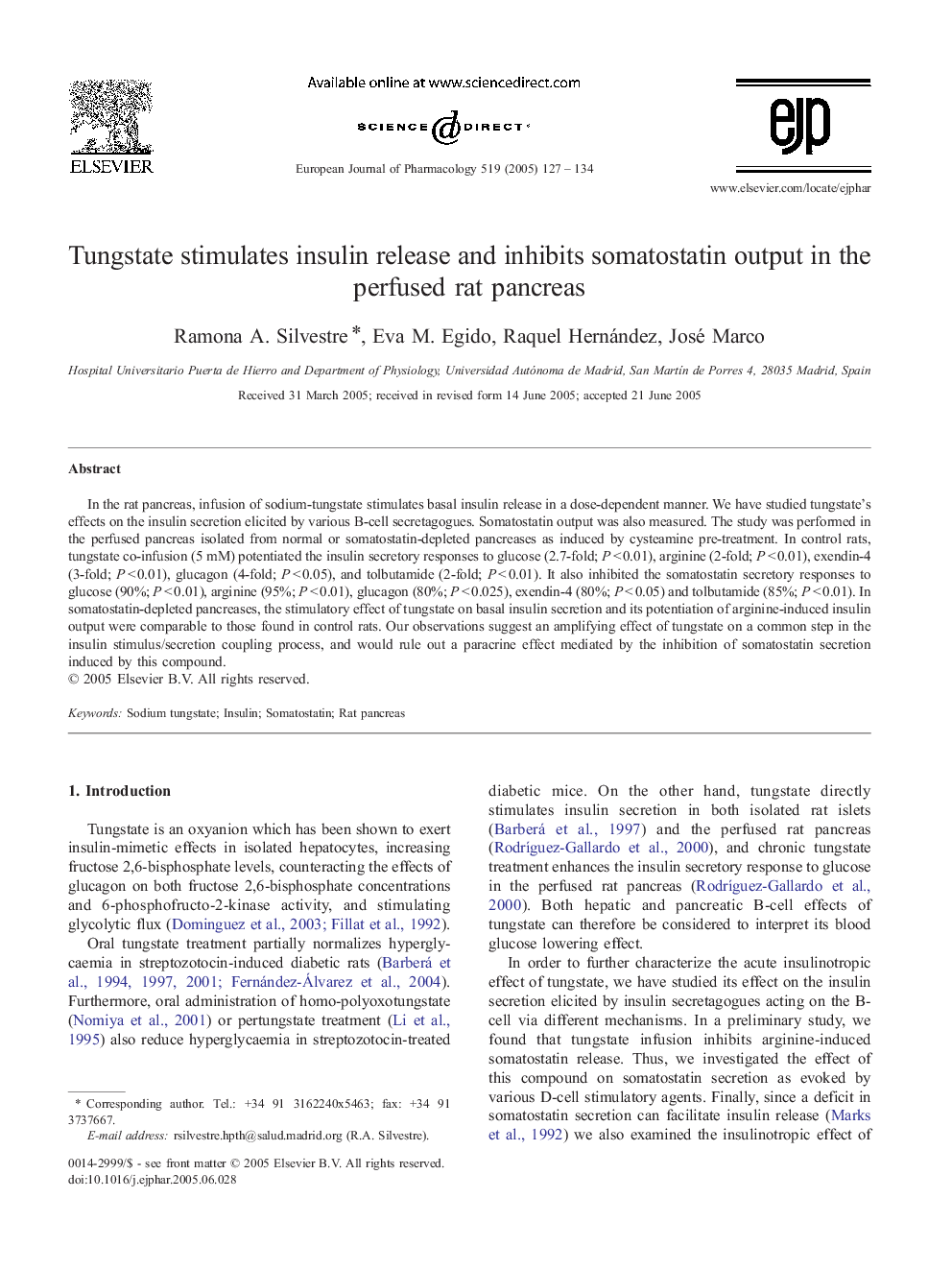| Article ID | Journal | Published Year | Pages | File Type |
|---|---|---|---|---|
| 9921167 | European Journal of Pharmacology | 2005 | 8 Pages |
Abstract
In the rat pancreas, infusion of sodium-tungstate stimulates basal insulin release in a dose-dependent manner. We have studied tungstate's effects on the insulin secretion elicited by various B-cell secretagogues. Somatostatin output was also measured. The study was performed in the perfused pancreas isolated from normal or somatostatin-depleted pancreases as induced by cysteamine pre-treatment. In control rats, tungstate co-infusion (5 mM) potentiated the insulin secretory responses to glucose (2.7-fold; PÂ <Â 0.01), arginine (2-fold; PÂ <Â 0.01), exendin-4 (3-fold; PÂ <Â 0.01), glucagon (4-fold; PÂ <Â 0.05), and tolbutamide (2-fold; PÂ <Â 0.01). It also inhibited the somatostatin secretory responses to glucose (90%; PÂ <Â 0.01), arginine (95%; PÂ <Â 0.01), glucagon (80%; PÂ <Â 0.025), exendin-4 (80%; PÂ <Â 0.05) and tolbutamide (85%; PÂ <Â 0.01). In somatostatin-depleted pancreases, the stimulatory effect of tungstate on basal insulin secretion and its potentiation of arginine-induced insulin output were comparable to those found in control rats. Our observations suggest an amplifying effect of tungstate on a common step in the insulin stimulus/secretion coupling process, and would rule out a paracrine effect mediated by the inhibition of somatostatin secretion induced by this compound.
Related Topics
Life Sciences
Neuroscience
Cellular and Molecular Neuroscience
Authors
Ramona A. Silvestre, Eva M. Egido, Raquel Hernández, José Marco,
